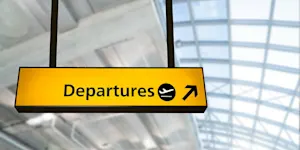What Makes This Word Tick
"Stroll" is all about taking your time and enjoying the journey rather than rushing to a destination. It's a leisurely walk, often accompanied by sunny days, gentle breezes, and the pleasure of one's own thoughts or good company. The very sound of the word seems to dawdle pleasantly on the tongue.
If Stroll Were a Person…
If "stroll" were a person, they would be that friendly neighbor who never seems to be in a hurry. You'd likely find them on a Sunday afternoon, ambling through the park with a story to tell, a smile on their face, and a knack for finding the best hidden paths.
How This Word Has Changed Over Time
While "stroll" has long meant a leisurely walk, it's gathered some additional baggage over time. In the past, a "stroll" was not just about leisure; it sometimes referred to vagabonding or wandering aimlessly—a far cry from today's more relaxed and idyllic connotations.
Old Sayings and Proverbs That Use Stroll
Though "stroll" itself isn't commonly found in proverbs, the concept isn't far from the likes of "Take time to smell the roses." It captures the essence of slowing down and cherishing the simple pleasures in life, blending perfectly with aphorisms encouraging mindfulness.
Surprising Facts About Stroll
Interestingly, "strolling" was once a term used in theatrical circles. "Strolling players" referred to traveling actors who brought drama to towns and villages. It also has a connection to the Ziegfeld Follies—a series of theatrical productions on Broadway—where a "stroll" was part of the chorus girls' routines.
Out and About With This Word
Head out for a "stroll" in your neighborhood, and you'll likely experience more than just exercise. It becomes a chance to notice budding flowers, exchange smiles with passersby, or discover a delightful new café you'd never seen when rushing by in a car.
Pop Culture Moments Where Stroll Was Used
One can't help but recall "The Merry-Go-Round Broke Down," the theme for the iconic Looney Tunes, which invites listeners to take a nonchalant stroll through the whimsical landscape of animated antics. It's a perfect backdrop for the charming chaos of Bugs Bunny and friends.
The Word in Literature
Authors who've captured the subtleties of everyday life, like Virginia Woolf, embrace the idea of a "stroll." You'll find characters taking leisurely walks, often as a backdrop for deep introspection or gentle interactions, adding a layer of humanity to their narratives.
Moments in History with Stroll
Imagine Milan in 1943, with the Bold Beguines—an underground group of women—who used the guise of a "stroll" to pass messages during WWII. Their seemingly innocent meanders through city streets proved a vital part in the resistance movement against occupation.
This Word Around the World
In French, you might "faire une promenade," while Italians might suggest a "passeggiata," both reflecting similar concepts. Across cultures, the idea of taking a leisurely walk is celebrated, often associated with community life and evening traditions.
Where Does It Come From?
"Stroll" first strolled into the English language in the mid-17th century and seems to have a vagabond soul at its heart, possibly deriving from the German word "strollen," meaning "roam" or "wander."
How People Misuse This Word
While some might equate "stroll" with exercise, true strolling doesn’t focus on fitness or calibration of steps per minute. It's often used incorrectly to describe a brisk power walk, losing the leisurely nuance that makes a stroll, well, a stroll.
Words It’s Often Confused With
Walk: Generally more about the act of moving on foot, but not necessarily leisure-focused.
Saunter: Another leisurely walk, though "saunter" suggests a more aimless or carefree attitude.
Ramble: Implies a long walk without a set destination, possibly out in the countryside.
Additional Synonyms and Antonyms
Synonyms include "amble" and "meander," both capturing that easygoing vibe. Antonyms would be "jog" or "march," which imply speed, purpose, and urgency—everything a stroll is decidedly not.
Want to Try It Out in a Sentence?
"On Sunday afternoons, Margaret would stroll through the nearby gardens, enjoying the vibrant blooms and warm sun on her face."
















